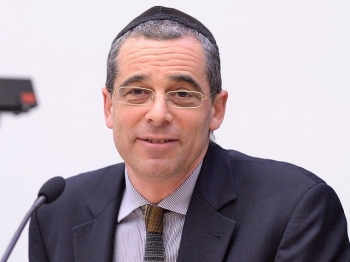The holiness of Jerusalem should not be confused with sovereignty

Rabbi David Meyer, a visiting professor at the Pontifical Gregorian University in Rome, reacted to international events related to the status of Jerusalem. Last year he contributed to our annual magazine, Jerusalem Cross, in a profound interview on the dialogue between Jews and Catholics, this year we offer readers his thoughts contained in an editorial published in "Le Monde" last December 7 after the announcement by President Donald J. Trump of the recognition by the United States of America of Jerusalem as the capital of Israel, giving instructions to transfer the embassy from Tel Aviv to Jerusalem.
Starting from the assumption of the indisputable religious importance of this city for the believers of the three monotheistic religions, Rabbi Meyer affirms that "the 'holiness' associated with this place, which echoes within Jewish tradition on several occasions, should not be confused with any obligation of 'sovereignty'. Not 'owning' this city (in a political sense) does not imply the loss of its symbolic religious character, identified with and linked to the memory of the Jewish people”.
Since 1980 Jerusalem has been declared "eternal and indivisible capital" of the State of Israel by the fundamental law passed in the Knesset. However, as Rabbi Meyer points out, it is important to remember that the Torah (the main religious text for the Jews) does not mention this city and the rest of the biblical account is not always consistent with its political affiliation. "Rather than the capital of two states, it would be more just and religiously sensible to reject the idea that Jerusalem could be a capital," continues the rabbi, relying on two terms of rabbinic tradition that define some objects without owner (hekfer) or reserved to religious purposes and rituals (hekdesh) and therefore not tied to a profane use.
The proposal put forward by Rabbi Meyer is therefore that of a "voluntary abandonment of sovereignty that would restore to the city its potential of 'holiness'" and he ends with a hope: "that the idea of 'the Jerusalem on high’ draws the political reality of the ‘Jerusalem below' to it instead of allowing latter drag the idea of 'Jerusalem on high' down to the ridiculousness of human possession."
(December 18, 2017)



